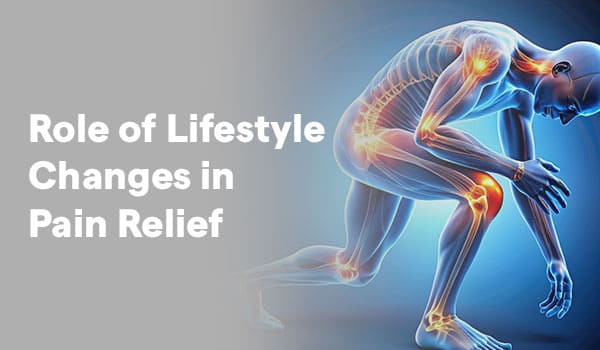
The role of pain management in relieving patients from their misery is essential and undeniable. Suffering is a distressing perception that may be the result of an illness, an injury, or as a consequence of treatment and therapy. Acute as well as Chronic pain can affect one’s quality of life and ability to function. Medications are generally prescribed for pain management, although there are effective roles in lifestyle changes in both acute or chronic pain suffering or enhancing the quality of life of patients with pain conditions.
Since 1994, Sir Ganga Ram Hospital has had a dedicated Pain Relief Unit that has been prominent in delivering a full spectrum of treatment options for preventing and treating both acute and chronic pain. The decades of experience in Pain Management at Sir Ganga Ram Hospital have propelled it to lay the first stone of a pain-free hospital initiative in 2011, the first of its kind in India.
Especially in patients with Chronic pain, individuals must consider important lifestyle changes suggested by the specialists in addition to their medical treatment for appropriate management and rehabilitation. These changes could be the first step towards a healthier and better way of life. Some lifestyle changes as discussed as follows:
According to several surveys, it was found that alterations to diet and lifestyle could be effective in a way to decrease inflammation which is often the root of pain. An anti-inflammatory diet incorporates fruits, vegetables, lean protein, whole grains, nuts, seeds, fatty fish, beans, lentils, spices such as turmeric and healthy fats such as olive oil.
These food items contain antioxidants, fibre, and omega-3 fatty acids that help fight inflammation. Excess consumption of processed foods, refined carbohydrates, sugars, and products containing saturated and trans fats can also increase the inflammation rate throughout the body.
Nutrition is foremost important as obese people release pro-inflammatory molecules from stored fat that intensify the pain. Pain conditions have also been found to have links to nutritional deficiencies, which means that having a diet full of nutrients would make sure the body has what is needed to avoid pain.
Stress in the short-term and long-term can regulate inflammation and, therefore, increase pain. Coping mechanisms assist in minimising the effect of stress on the mind and the whole body. These include meditation, breath control, yoga, mindfulness-based relaxation techniques, progressive muscle relaxation techniques, and management of emotional stressors. These coping mechanisms lead to a relaxation response in our body that slows down the heartbeat, reduces blood pressure, and relaxes tense muscles. Other interventions which help in stress management include, going for a walk in the park, writing, or drawing.
As a rule, it is beneficial to undertake moderate exercises despite mild soreness after physical activities in the long run because it is helpful for the chronically painful patient. There are simple forms of aerobic physical workouts like walking, swimming, water aerobics, cycling, etc which can improve blood circulation, strengthen muscles, add flexibility; help in weight control, and also promote the production of endorphins, a natural pain killer in the body. Strength training also increases muscle mass and hence improves the support of joints and bones. It is always advisable to consult a healthcare provider before beginning any exercise program.
Lack of quality sleep leads to inflammation and hyperalgesia, which leads to pain sensitivity. Ideally, individuals should sleep seven to nine hours each night. Maintaining a consistent sleep schedule, avoiding light at night, and limiting TV or phone use before bed can help improve sleep quality. The muscles need to be rested to perform the task of pain control and adequate restorative sleep assists the body to do this.
Minimizing known sources of exacerbation or aggravation of pain also helps in the process of relieving pain. Conditions of triggers include colds, hot weather, climate changes, tobacco, exposure to passive smoking, physical exertion or heavy lifting, specific meals, poor posture, stress, sleep loss, and failure to take pain medication on time. People can decide to keep a pain and symptom journal to discover triggers within their lives that can be avoided.
See a physical therapist to undergo stretching, strength, and conditioning techniques after a comprehensive assessment to manage musculoskeletal pain and gain better mobility. Other modalities that may also be applied to treat pain and prevent further injury include ultrasonic therapy, electrical stimulation, compression, bracing, taping, massaging, dry needling therapy, and applying heat or cold. Only a certified physical therapist can vouch for the safety and appropriateness of activities and exercises.
Many individuals seek comfort in complementary and alternative therapies commonly employed and utilised alongside conventional pain management regimes. These include mindfulness meditation, yoga, tai chi, music/art therapy, osteopathic/manipulative treatment, acupuncture, massage therapy, topical treatments like capsaicin cream, menthol gels, or CBD oil, etc. It is always wise to consult the best doctors from your city before going for supplements or other natural therapies, as most of them may have side effects that may interfere with the drugs.
Tobacco smoking, alcohol, and substances that are consumed have been known to worsen pain and affect prescribed medications and all other treatments for pain. Smoking cessation in individuals fosters better blood flow as well as respiratory functioning, which is crucial for leading a healthier life. Avoiding tobacco, alcohol and illicit substances prevents increased pain sensitivity in the long run. Lifestyle modifications in these habits significantly support medical treatment regimens in view.
As much as managing acute or chronic pain calls for prescription medication, making some specific changes in one's lifestyle improves pain management and general quality of life. Avoiding high-inflammatory foods, learning proper stress management techniques, exercising regularly, getting enough rest and avoiding certain triggers, physical therapy, complementary approaches, and breaking unhelpful habits all complement pain medications/treatments in reducing discomfort. Lifestyle modifications allow patients with pain to regain their control using measures in combination with those offered by doctors. To know more, Book an Appointment at Sir Ganga Ram Hospital today.